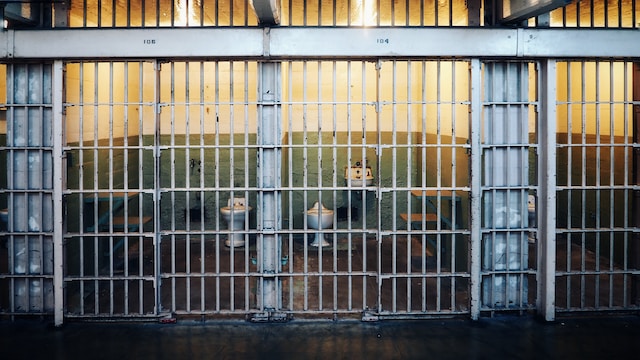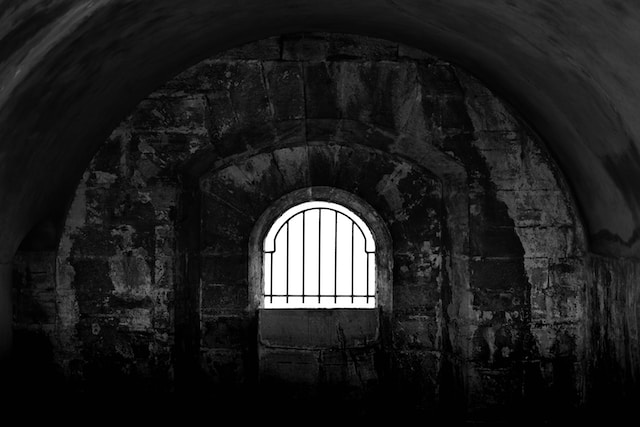Both parole and probation are alternatives to serving time in jail or prison. Probation is granted before a person goes to jail, while parole is granted after they have served some time behind bars. The key difference between the two is that probation allows individuals to avoid incarceration altogether, whereas parole grants early release from imprisonment.
What is parole?
(Photo by Umanoide on Unsplash )

Parole is a legal term that refers to the early release of a prisoner from prison under certain conditions. These conditions are usually set by a parole board and may include regular check-ins with a parole officer, drug testing, and participation in counseling or treatment programs.
The goal of parole is to help prisoners reintegrate into society after serving their sentences. By allowing them to leave prison early, they can begin rebuilding their lives while still being held accountable for their actions.
Not all prisoners are eligible for parole. In general, only those who have served a portion of their sentence and demonstrated good behavior while in prison will be considered for parole. The specific requirements vary depending on the state and the nature of the crime committed.
Once released on parole, individuals must follow all of the terms set forth by the parole board or risk being sent back to prison. This could mean violating curfew hours or failing drug tests.
While it’s not an automatic right nor easy process; however, if granted correctly it’s an opportunity for inmates who meet eligibility criteria to return home earlier than expected under certain provisions/conditions which ultimately prevent recidivism rates from increasing significantly.
What is probation?
Probation is a type of criminal sentence that allows an offender to serve their punishment outside of jail or prison, as long as they comply with certain conditions and restrictions. These conditions can vary depending on the severity of the crime, but typically include regular check-ins with a probation officer, community service, drug testing, and avoiding contact with victims or other specific individuals.
The goal of probation is to rehabilitate offenders while also ensuring public safety and reducing the burden on correctional facilities. It provides an opportunity for individuals to demonstrate they can live responsibly within society without committing further crimes.
Probation may be granted at sentencing or after serving a portion of a jail sentence. The length of probation can also vary based on individual circumstances but usually lasts between one and five years.
It’s important to note that violating any condition of probation could result in immediate revocation and return to incarceration. This makes it crucial for those on probation to strictly adhere to all requirements set forth by their probation officer.
Parole Vs. Probation – Key differences
Parole and probation are two terms that are often used interchangeably, but they have some significant differences. Probation is a type of community supervision that courts give to offenders instead of sending them to jail or prison. On the other hand, parole is an early release from incarceration after serving part of the sentence.
Probation typically means that the offender can avoid going to jail or prison if they follow certain conditions set by the court. These conditions could include regular visits with a probation officer, drug testing, community service hours, attendance at counseling sessions or classes, and more.
One key difference between parole and probation is who imposes it: judges give out sentences for probation while parole boards grant early releases for inmates already serving time in prison.
Another major difference between the two is what happens if you break your agreement with either program. If someone on probation violates any condition set forth by their judge or fails to meet all requirements within their timeframe – then they will likely end up back in court facing additional charges and potentially heading straight into jail time.
On the other hand, violating parole may result in returning to prison without trial due process being exercised since this individual has already been convicted before receiving an early release.
In short, both programs aim at reducing overcrowding in jails/prisons while ensuring public safety; however – they differ significantly regarding implementation and enforcement mechanisms.
Who may apply for probation?
Probation is a legal sentence that allows an offender to serve their time outside of prison or jail. Not everyone is eligible for probation, and certain criteria must be met before being granted this form of release.
The eligibility requirements for probation vary from state to state, but in general, individuals who have committed non-violent crimes are more likely to receive probation than those who have committed violent offenses. Additionally, first-time offenders may also be considered more favorably for probation than repeat offenders.
Other factors that are taken into consideration when determining eligibility for probation include the severity of the crime committed and the defendant’s criminal history. A judge will carefully review all aspects of the case before making a decision on whether to grant probation.
It’s worth noting that not all defendants can apply for probation themselves; it must be requested by their defense attorney or recommended by a prosecutor as part of a plea deal. In some cases, judges may also initiate discussions about offering probation as an alternative sentencing option.
While there is no guarantee that someone will be granted probation if they meet these criteria, understanding who may apply for it can help individuals navigate the legal system with greater clarity and confidence.
Who can get parole?
Parole is a conditional release granted to an offender after serving a portion of their sentence in prison. However, not everyone is eligible for parole.
The eligibility criteria for parole vary from state to state and depend on the nature of the crime committed, as well as the offender’s behavior during their incarceration. In general, those who have committed violent or serious crimes are less likely to be considered for parole.
In addition, offenders with prior convictions or repeated offenses may also face challenges when it comes to obtaining parole. The decision regarding whether or not an offender will be granted parole ultimately rests with a hearing officer or board.
It’s also worth noting that even if an individual meets all of the eligibility requirements for parole, there’s no guarantee they’ll be released early. The purpose of granting parole is to allow offenders who’ve demonstrated good behavior and rehabilitation progress an opportunity to reintegrate into society while still under supervision.
Receiving parole is never a guaranteed outcome and depends on various factors such as criminal history and behavioral patterns during confinement.
When can probation be revoked?
Probation is granted to an offender as a chance to avoid serving time in prison or jail. However, probation comes with certain conditions that the offender must meet throughout its duration.
If these terms are not met, probation can be revoked by the judge. The revocation of probation typically occurs when an offender violates one or more conditions of their probation.
Common violations include failing drug tests, missing appointments with a probation officer, committing additional crimes while on probation and leaving town without permission.
Once the court becomes aware of the violation, a hearing will be scheduled where both parties will argue their case. If found guilty of violating their parole agreement, offenders may have to serve out their original sentence behind bars.
It’s important for those on probation to understand that they’re still under strict supervision even though they were allowed to remain outside jail or prison walls. Any missteps during this period could result in severe consequences such as having your freedom taken away from you by having your parole revoked.
What is parole and example?
Parole is the conditional release of a prisoner before their sentence has been fully served. This means that they will be allowed to leave prison under certain conditions, such as regular check-ins with a parole officer and adherence to specific rules.
An example of parole would be if a person was sentenced to ten years in prison for robbery. After serving six years, they may be eligible for parole if they have exhibited good behavior and shown signs of rehabilitation. They would then appear before a parole board who would decide whether or not to grant them conditional release.
If granted parole, the individual would need to follow strict guidelines set by their assigned parole officer. These could include regular drug testing, counseling sessions or finding employment within a certain time frame.
It’s important to note that violating any of these conditions could result in being sent back to prison to serve out the rest of your original sentence.
While it can provide an opportunity for inmates who have made progress towards rehabilitation, it’s crucial that those on parole understand the seriousness and responsibility that comes with this privilege.
Featured Image By – Mike Hindle on Unsplash








